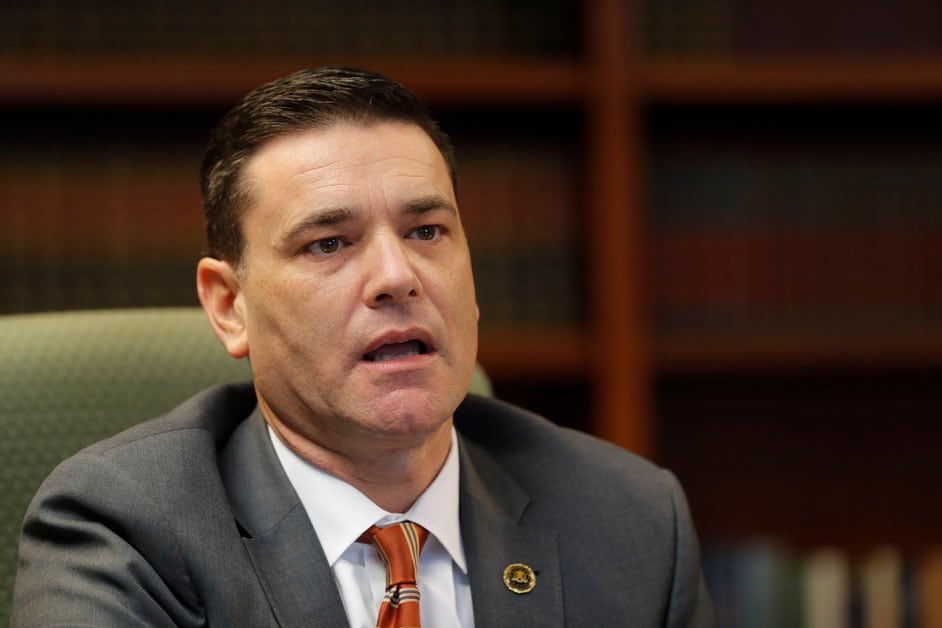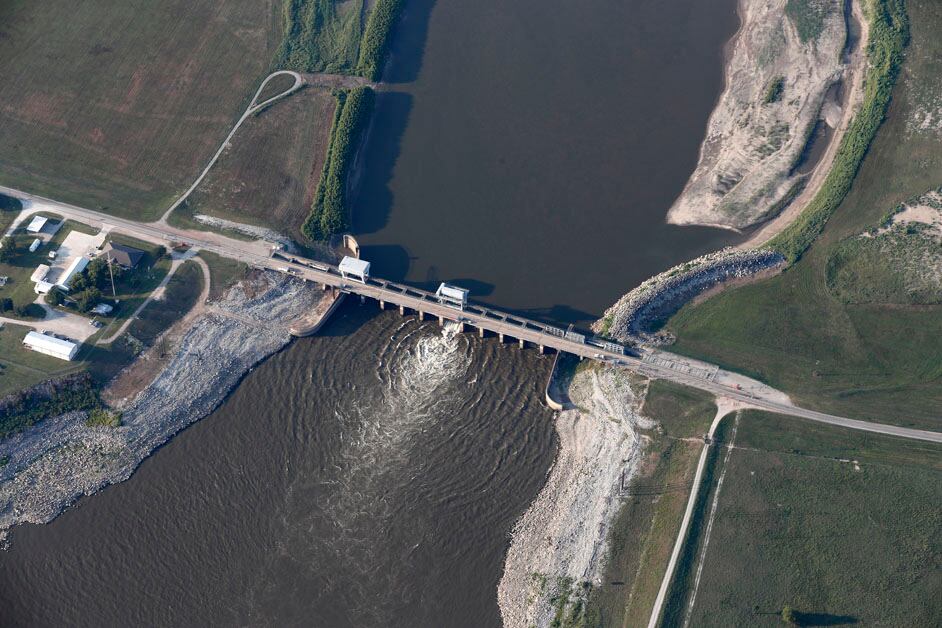NEW ORLEANS — Giant cranes loading and unloading gargantuan barges. Oil tankers, supply vessels and pipelines serving a vital energy industry. Flood control structures. Chemical plants. Cruise ships. Drinking water sources. All computer-reliant and tied in some way to the internet. All of them vulnerable to cyber thieves, hackers and terrorists.
Roughly nine months into his job as special agent in charge of the New Orleans office of the FBI, agent Eric Rommal is keenly aware of the dangers cyber-criminals pose to Mississippi River-related businesses and south Louisiana infrastructure.
“Louisiana is a major cyber vulnerability area,” Rommal told The Associated Press in an interview.

“Every time that we have a vessel that travels up or down the Mississippi River there’s a vulnerability: that that vessel or persons on those vessels may in fact be doing harm to our systems,” said Rommal. “And that affects the national economy and affects the entire United States.”
Rommal, accompanied by Matthew Ramey, who supervises the office’s cyber squad, and Drew Watts, an assistant special agent in charge, discussed a litany of vulnerable areas and the ways the FBI in New Orleans works to protect them.
COMMERCE
“When it relates to commerce and the economy throughout the United States, oil and gas — it all starts here,” said Rommal. “And when those systems are compromised, it doesn’t just affect Louisiana. It affects the entire nation.”
A cyber disruption of security systems that protect pipelines and refineries “could essentially cripple the oil and gas industry until we could get that system up and running again,” said Rommal.

Energy isn’t the only concern.
“The ports that are along the Mississippi River — many may think of them as an agricultural or a petroleum depot. But what we need to know more about is that each one of those systems is controlled by sort of computer network that allows barges to be off-loaded, loaded,” he said.
A hacker disrupting those operations could effectively disrupt nationwide and international commerce, he said, until it could be manually restored.
THEFT
Ports and the businesses that use them are susceptible to theft of money or critical information, Ramey said. And the theft can be state-sponsored.
“That would be, say, the Chinese, the Russians, the Iranians, the North Koreans, want to compromise the ports for, say, some sort of economic or secretive information. The maritime and the port industry are susceptible to what we call BEC — business email compromises,” Ramey said.

“Wire transfers are going out all the time, 24/7. If the attacker can insert himself into that email chain, they can assume the identity of the person who controls that account.” And that can lead to money being diverted to unintended sources.
FBI statistics show some 41,000 victims lost $2.9 billion to cyber-thieves nationally from October 2013 to May 2018, said Ramey. Over $5 million left the state in 2017 due to cyber-thieves, he said, adding: “In 2018, we’re on track to surpass that.”
TERRORISM
Offshore there are drilling rigs and production platforms. Inland, refineries and chemical plants line the river. Compromise of their computer systems and safety systems could lead to disaster, Rommal said.
“We’re confident that the internal security systems owned by each one of those companies have mitigation plans to prevent terrible disasters from happening,” he said. “But, nonetheless, it’s something that we think about every day.”
In addition, the agents acknowledged threats to public utilities — New Orleans, for instance, draws its drinking water from the river — and various flood-control structures and pumping systems.

THE FIGHT
Rommal said more than 20 people working for the FBI headquarters in Louisiana are working on cyber security.
They include experts working at forensics labs, doing forensics on computer hard drives and developing techniques for analyzing computer memories in efforts to fight and find intruders.
And, Rommal said, there are partnerships with other federal agencies, including a joint effort known as the National Cyber Investigative Joint Terrorism Task Force.
There is also the national InfraGard , an FBI program that enlists thousands of private-industry partners from potential cybercrime target sectors, such as such as transportation, energy, banking and infrastructure. Ramey said there are 800 members in Louisiana.
Participants can provide and receive real-time information on imminent cyber threats.
The FBI also maintains a website for its Internet Crime Complaint Center . It’s a mechanism for businesses and individuals to report cybercrime, and a source of information on the ever-evolving threat.
“We’re not in this fight alone,” said Rommal. “And it is a fight.”
Associated Press writer Stacey Plaisance contributed to this report.





